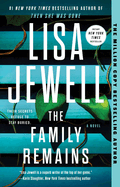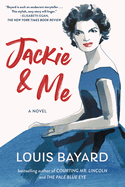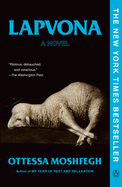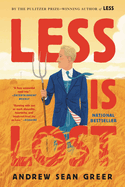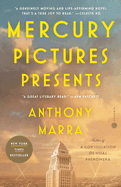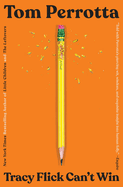Friday, July 21, 2023
Welcome to our Comics & Graphic Novels issue! Among the titles reviewed this week: Arca by Van Jensen, illus. by Jesse Lonergan, is "part mystery, part coming of age sci-fi graphic novel adventure"; the graphic novella LSBN, in which Emma Jayne "deftly balances elements of science fiction with romance and erotica"; and Thien Pham's "moving, insightful graphic novel memoir" Family Style, which shares the Vietnamese refugee experience through food. Plus so many more!
In The Writer's Life, debut picture book creators Leah Hayes and Balint Zsako discuss illustration as "problem solving." And don't miss our round-up of more outstanding comics & graphic novels that we reviewed earlier this year.
Crook Manifesto
by Colson Whitehead
"This was America, melting pot and powder keg," says a character in Crook Manifesto, Colson Whitehead's energetic and impeccably hardboiled sequel to 2021's Harlem Shuffle. The first novel took place mostly in the 1960s. In this work, which also blends crime elements with explorations of family dynamics, it's the 1970s, and many of the characters return, including former stolen-goods fence and current furniture salesman Ray Carney and his wife, Elizabeth, as well as a colorful assortment of family members and crime-ring accomplices.
The book is three interlocking novellas. In the first, Carney tries to score Jackson 5 tickets for his daughter from corrupt cop Munson, but in order to get them, Munson forces him to participate in a scheme involving a case of stolen diamonds. The second, set two years later, involves a film director, dressed "in snakeskin pants and megawatt yellow blouse," determined to make a Blaxploitation film, and the "freelance muscle" he hires for security and, later, to find their missing leading lady. The last part, set during America's bicentennial, is the story of a former district attorney running for Manhattan borough president, a suspicious fire above Carney's store that burns an 11-year-old tenant, and the possible connection between them. Backstories sometimes weigh the novel down, but Whitehead (The Nickel Boys; The Underground Railroad; Zone One) expertly re-creates the era, with particularly entertaining details about the film. And his humor is as sharp as ever, as when he writes that the bicentennial hoopla "was driving Carney batty. It was inescapable, like a dome of red, white, and blue smog." --Michael Magras, freelance book reviewer
Discover: Fans of Colson Whitehead in a hardboiled vein will love Crook Manifesto, sequel to Harlem Shuffle, a spirited continuation of the story of erstwhile stolen-goods fence Ray Carney.
Women of the Post
by Joshunda Sanders
Debut novelist Joshunda Sanders takes readers deep into the lesser-known Black and female U.S. military forces. Inspired by the true history of the pioneering Black women who served in the 6888th Battalion during World War II, Women of the Post tells the memorable story of four women brought together by their service. Judy Washington is tired of her day work in white women's homes on the Bronx Slave Market ("so-called slave markets for domestic workers in New York City") and yearns for a job that carries "stability and meaning." A recruiter for the Women's Army Corps (WAC) arrives in the Bronx to form a unit of Black women to serve in the U.S. military. Judy jumps at the chance to apply. In training with the WAC, she becomes fast friends with Stacy, Bernadette, and Mary Alyce. They lean into their newfound friendship while facing the sexism and racism of 1940s America--and the World War II military forces at home and abroad. The four find themselves part of the first-ever unit of Black women to be stationed abroad; "No Mail, No Morale" is their mantra as they sort through millions of pieces of lost mail between soldiers on the front lines of war and their loved ones back home.
It is a story as replete with themes of friendship, love, and self-discovery as it is war and hardship. Elevating the stories of lesser-known heroes of World War II and the ongoing struggles of Black women for acceptance, equality, and equity, Women of the Post is a significant work of historical fiction not to be missed by fans of the genre. --Kerry McHugh, freelance reviewer
Discover: Women of the Post is a significant work of historical fiction inspired by the true stories of pioneering Black women veterans who served in the 6888th Battalion during World War II.
Vanishing Maps
by Cristina García
In a follow-up to Dreaming in Cuban, her 1992 debut, Cuban American novelist and journalist Cristina García returns to the beloved del Pino family with Vanishing Maps, which picks up two decades later with four del Pino generations now scattered around the globe.
Nonagenarian matriarch Celia remains in Santa Teresa del Mar, but she's "started dreaming again: of leaving Cuba, of visiting her ex-lover in Grenada," whom she hasn't seen in 66 years. Older daughter Lourdes, in Miami, publicly protests the return of a young boy to Cuba after he survived a boat escape that killed his mother. Pilar, Lourdes's daughter and a struggling Los Angeles artist, finally visits Lourdes with her young son, Azul. The contentious reunion of mother and daughter is brief, and Pilar decamps to Berlin, where her cousin Ivanito is both a notable polyglot translator and sensationally in-demand drag queen. His late mother, Celia's middle child, refuses to leave him alone, even in death. Celia's only son, Javier, is missing, but his daughter Irina--Ivanito's cousin--is a queen of sorts as well, having invented herself as the "brassiere queen of Russia," a manufacturing powerhouse. When she travels to Berlin to open another factory, she discovers an identical twin. Of course, these disparate paths must converge.
To have previously enjoyed Dreaming in Cuban is not required; Vanishing Maps stalwartly stands alone. Return readers might notice that García's inventive structure in both novels is similar, mixing third- and first-person narration, moving back and forth in time, and inserting interludes for illuminating, sometimes teasing, glimpses into the past. García presents an exquisite family affair to remember. --Terry Hong, BookDragon
Discover: Cristina García continues the sensational dramas of the del Pino family--first introduced in her 1992 debut, Dreaming in Cuban--in Vanishing Maps, a spectacular companion title.
I Meant It Once
by Kate Doyle
Kate Doyle's debut, I Meant It Once, is a collection of sparkling prose that beautifully tangles life's changes, uncertainties, and self-discoveries into 16 stories. Each piece follows families, friends, roommates, and lovers on the most mundane and groundbreaking journeys of their lives. The inner musings of narrators follow moments of uncertainty for the future, longing for past selves and relationships, and the self-discoveries forced or warmly welcomed by the familiar scenarios of young adulthood. The stories follow the turmoil of college relationships, the evolution of childhood friendships, familial tensions, and more. "That Is Shocking" follows an embarrassing breakup involving heart-shaped scones, and "What Else Happened" highlights the unfortunate and humorous events making up a particularly bad semester on account of broken wrists and almost failed classes. Doyle links three stories ("This Is the Way Things Are Now," "Cinnamon Baseball Coyote," and "Like a Cloud, Lighter than Air") by the rivalries and inside jokes of siblings and parents. Each story is delightfully entertaining and often subtly profound.
The sharp, descriptive, and witty entries in this collection experiment with different forms of storytelling--from first- and third-person points of view--and, throughout the book, seamlessly intertwine characters, events, and emotions. Also interwoven into the collection are extraordinary insights into personal turning points, big and small, for young women--all equally vulnerable, honest, and intimate. Doyle's characters are brightly imagined and, at moments, darkly humorous. She captures womanhood's intense and precarious state of deciding whose expectations to rise to and whose to break away from. I Meant It Once is brilliantly conceived, written, and compiled. --Clara Newton, freelance reviewer
Discover: Through beautiful prose and sharp storytelling, Kate Doyle debuts with a collection of 16 stories intertwining the lives of young women traversing change and uncertainty.
The Jasad Heir
by Sara Hashem
The heir to a destroyed kingdom must make a dangerous bargain with her deadliest enemy in The Jasad Heir, an intricate, brutal, and romantic Egyptian-inspired debut fantasy by Sara Hashem. When the kingdom of Nizahl invaded and destroyed the kingdom of Jasad, they slaughtered the Jasadi royal family and outlawed magic. Only Essiya, the young princess, survived to grow up in hiding as village girl Sylvia. Nizahl's armed forces still hunt the Jasadi, and Sylvia's life depends on Essiya's presumed death and the invisible cuffs that bind her magic. When Nizahli soldiers come to her village hunting Jasadi rebels, Sylvia inadvertently reveals her forbidden magic to Arin, the cold, calculating, and gorgeous Nizahl heir. Instead of executing her, Arin names her Nizahl's champion in the Alcalah, a deadly tournament of nations. He promises to set her free if she lets him use her as bait for the rebels. Trapped by circumstance, Sylvia must match wits with Arin to keep her identity secret even as their burning animosity turns into a different sort of spark.
Fantastical creatures and horrifying monsters combine with scheming royals to create a perilous landscape in this epic fantasy series opener. Sylvia/Essiya is understandably cynical beyond her 20 years, reflecting, "it is the nature of humanity to celebrate the things that want to kill them." Her cat-and-mouse game with cunning Arin is as great a delight as Hashem's intricate world-building. This adventure marks the start of a fantasy series to savor. --Jaclyn Fulwood, blogger at Infinite Reads
Discover: A princess in hiding must outwit the deadly heir of an enemy kingdom in this thrilling, romantic, Egyptian-inspired epic fantasy.
Mystery & Thriller
How Can I Help You
by Laura Sims
In Laura Sims's chilling novel How Can I Help You, Margo Finch toils away as a circulation clerk at the Carlyle Public Library but, far from possessing any relevant experience, she's a refugee under a different name from a nursing career, who's left a series of hospital jobs with a string of unexplained patient deaths. As if that weren't worrisome enough, at least one more shocking event in Margo's past adds to her menace.
Her life in a world of books begins to unravel when Patricia Delmarco, a new reference librarian, arrives from Chicago. Patricia has her own set of troubles she's trying to escape, among them a failed novel she's abandoned after seven years, and a moribund relationship with her accountant boyfriend. Patricia is content to put her aspirations for a writing career behind her as she settles into her job, at least until a cantankerous library patron dies under mysterious circumstances with Margo nearby. After Margo carelessly discloses information about her prior life, Patricia's research skills kick in. Patricia unleashes a flow of words about her co-worker's vividly imagined past into the notebook that is her constant companion--all while she sits at her desk responding to an array of bizarre reference questions from library patrons.
From that point forward, in chapters that alternate between the voices of Margo and Patricia, Sims (Looker) fashions an intriguing cat-and-mouse game in which it's hard at times to distinguish between pursuer and pursued. How Can I Help You is smartly scary entertainment that will have readers guessing about its outcome until almost the final page. --Harvey Freedenberg, freelance reviewer
Discover: In this canny and chilling thriller, two librarians face off in a deadly battle of wits that only one can win.
The Mistress of Bhatia House
by Sujata Massey
The Mistress of Bhatia House by Sujata Massey (The Bombay Prince) is another fascinating entry in the vibrant historical mystery series starring Perveen Mistry, the only female solicitor in Bombay under the British Raj. Perveen, permitted to practice law by her fairly lenient Parsi father, faces massive discrimination from Hindus, Muslims, and British society matrons alike. But Perveen turns her unusual position into an asset, frequently assessing the people around her from the sidelines of social gatherings. At a garden party at the luxurious Bhatia House, Perveen is shocked to witness Sunanda, an ayah (nanny) for the wealthy Bhatias, get badly burned while protecting a child. A few days later, at the jail to meet with another client, Perveen sees Sunanda again and is appalled that she's in chains, with her burn wound festering. Perveen discovers that the young ayah has been charged with a suspected abortion, and she dedicates herself to helping Sunanda. When the patriarch of the Bhatia family is poisoned soon thereafter, the stakes for Perveen's involvement are even higher.
Massey's writing vividly captures the complicated world of 1920s India and the many religious groups who uneasily coexisted. Perveen's strong character--unafraid to enter realms that Indian women generally do not--will resonate with modern readers, and she is sure to appeal to fans of Jacqueline Winspear's Maisie Dobbs. Thoughtful and perceptive, The Mistress of Bhatia House is a quiet mystery and just as much an exploration of Indian society and British misogyny as it is a clever whodunit. --Jessica Howard, freelance book reviewer
Discover: In this quiet, clever mystery, a young solicitor finds herself drawn into a possible murder investigation in 1920s Bombay.
Silver Nitrate
by Silvia Moreno-Garcia
Movie magic has its dark side in Silver Nitrate, a twisted horror thriller by Silvia Moreno-Garcia (The Daughter of Doctor Moreau; Mexican Gothic). Montserrat Curiel is a struggling sound editor in 1990s Mexico City; she's talented but held back by a jerk of a boss and his boys'-club style of management. Her friend Tristán Abascal, an actor whose never-quite-first-rate career was stalled by scandal, discovers that his new neighbor is director Abel Urueta. Because Tristán and Montserrat share a love of cult horror movies, he invites her along to dinner with Urueta, who presents them with a proposition. Decades earlier, Urueta participated in an attempt by a Nazi occultist to cast a literal spell through filmmaking. The film was never completed, and Urueta believes the curse of the unfinished spell is what ended his career. He believes if Montserrat and Tristán can help him finish the missing scene, the curse will be lifted. But once they begin work on the film, Montserrat and Tristán find themselves entangled with supernatural enemies.
Moreno-Garcia skillfully balances cult-film lore, movie-making techniques from different periods, and occult scheming with well-constructed, intriguing characters. The backdrop of Urueta's career and the origin of the cursed film is intricately constructed and, once production is underway, the thrills never stop. The menaces of racism and misogyny looming over the action add a thoughtful streak that gives some depth to the narrative. Thriller fans and movie buffs will be on the edges of their seats. --Kristen Allen-Vogel, information services librarian at Dayton Metro Library
Discover: Spellcasting through filmography is a dangerous game in this exhilarating supernatural thriller.
Science Fiction & Fantasy
Camp Damascus
by Chuck Tingle
A young woman rediscovers her past and strikes out against her community's secrets in Camp Damascus, a gripping horror novel from Chuck Tingle (Straight; Just Kind of Ignoring This Sad Lonesome T-Rex Who Is Screaming "Debate Me" from His Folding Chair). Rose is part of Neverton, Montana's Kingdom of the Pine community, a strict Christian sect that eschews fantasy fiction, alcohol, and caffeine, in addition to running a "gay conversion" program at Camp Damascus outside of town. Rose always thought there was something funny about the camp's commercials: the locals in the crowd shots mostly claim they have never been there, and the few who say they have can't describe it. But as she approaches the end of high school, she begins to experience mysterious and sometimes violent apparitions whenever she comes close to acknowledging her attraction to women. She realizes that something was done to her at Camp Damascus that she must remember and, with the help of two other survivors, keep from happening to anyone else. Rose, like Tingle, is autistic, and her neurodivergence might just mean she's able to overcome the camp's brainwashing.
Tingle is best known as a writer of short surrealist erotica, but in this, his first traditionally published novel, he proves that he is equally skilled at social horror in the vein of The Stepford Wives or Get Out. Sharp allegory and an appealing narrator will make Tingle's fans and new readers eager for more in any genre he pursues. --Kristen Allen-Vogel, information services librarian at Dayton Metro Library
Discover: A queer, neurodivergent heroine faces down her demons in this creepy work of social horror.
Immortal Longings
by Chloe Gong
Chloe Gong (Our Violent Ends; These Violent Delights) makes her adult fantasy debut with Immortal Longings, a propulsive, riveting, and meticulously crafted retelling of Shakespeare's Antony and Cleopatra. Gong's young adult series reimagined Romeo and Juliet in an alternate historical Shanghai, but Immortal Longings is set in an alternate present, in which technology and inequality are entwined. The world of Immortal Longings is tightly controlled and suffocatingly crowded, as the rulers of Talin control the lives of every citizen, and travel is all but forbidden. At the heart of Immortal Longings is a brutal televised competition in which 88 players fight to the death to entertain and distract the citizens of San-Er. All players are assigned a wristband that tracks their movements around the twin cities, a necessary device due to the supernatural element Gong has built into this world: jumping between bodies. Some people have the genetic ability to transfer their qi from one body to another, but jumping follows clear rules--or so everyone thought.
Pampi believes "the gods let us jump so that we could be free," but August knows: "'There are no gods in this world.... Only kings and tyrants." As the game intensifies and a fiery romance develops between Calla and Anton, Gong adds unexpected political maneuvering and a jaw-dropping twist. Immortal Longings showcases Gong's imagination and skill, and should put her book at the top of fantasy readers' to-be-read piles. --Suzanne Krohn, librarian and freelance reviewer
Discover: A televised competition to the death drives the plot of Chloe Gong's Immortal Gods, an action-driven fantasy retelling, set in an alternate present, of Antony and Cleopatra.
Graphic Books
LSBN
by Emma Jayne
In the graphic novella LSBN, Emma Jayne (Trans Girls Hit the Town; Pseudo Slut Transmission) deftly balances elements of science fiction with romance and erotica to deliver a powerfully emotional story, with expert pacing enhanced through placement of close-up panels and aerial views. The story opens as a war between humans and colossal creatures ends via a peace treaty. But for members of a special military project called L.S.B.N., peace means the inability to test or use the giant machine they've poured so much time into building. They all expect to be fired now, too, given that there's no longer a need for their services. As the rest of the crew heads out to celebrate the end of the war and drink away their worries about the future, Mischa Polyakov and Commander Sugimoto find another way to mark the moment.
The characters of LSBN--with their intense personalities and palpable emotions-- jump off the page as Jayne's use of close-ups and irregularly shaped panels combines with Sloane Leong's manipulation of warm and cool colors to make the charged moments leading up to the two women's sexual encounter exciting and titillating. Mischa and the Commander support and encourage each other as each one falters, and the explicit sex scene is simultaneously hot and tender. The novella focuses on the romance between two trans women while the surrounding story develops themes of leadership, sustainability, power, and the illusory binary between destruction and creation. LSBN is a fantastic story about queer support, self-confidence, and the joys of transformation. --Dainy Bernstein, literature professor, University of Pittsburgh
Discover: Artistically and emotionally beautiful, LSBN is a sci-fi graphic novella celebrating queer romance, mutual support, and the joys of transformation.
Arca
by Van Jensen, illus. by Jesse Lonergan
Van Jensen (Two Dead) and Jesse Lonergan imagine a near-future dystopia in Arca, a thought-provoking sci-fi graphic novel with retro art and classic but updated themes. The Arca is a high-tech "vessel holding the last survivors of the human race." It is home to hundreds, and contains dozens of levels with everything its passengers need to survive, and creature comforts for a privileged few.
Those known as Citizens are the revered founders of the Arca, and the power they wield as former oligarchs is clear from the beginning. Citizens rely on Helpers, armed security personnel, to maintain order on the Arca. Settlers, young people under the age of 18, do all the work. Effie is a Settler assigned as aide to one of the Citizens. She tends to his children and his household while her friends work in other functional areas like food and sanitation. By day, the Settlers are fed a stream of propaganda over loudspeakers, and at night they return to their tiny, continuously monitored bunks.
Arca's creators aren't subtle in their depiction of this dystopia. Fairly early on, Effie begins unraveling the tangle of lies she's grown up with. It's upon finishing the book that the layers become clear, however, and readers will want to start over from the beginning to look for the clues Jensen and Lonergan drop along the way. While the plot mostly focuses on human interaction, the full-color artwork brings to life the setting with cleverly rendered machinery, living spaces, and even fake sunny skies. Part mystery, part coming-of-age sci-fi adventure, Arca sits comfortably among books like Brave New World and The Giver. --Suzanne Krohn, librarian and freelance reviewer
Discover: In this dystopian graphic novel, a young woman discovers the harrowing truth about the ship and post-apocalyptic society in which she lives.
The Rose Metal Press Field Guide to Graphic Literature: Artists and Writers on Creating Graphic Narratives, Poetry Comics, and Literary Collage
by Kelcey Ervick and Tom Hart, editors
The expanding popularity of graphic novels and comics is without question, but some may doubt the academic validity of the genre, stubbornly arguing it to be fluff without substance. Enter Rose Metal Press and their Field Guide to Graphic Literature as a weighty and informative response to those doubters. Throughout this collection, Tom Hart draws upon his extensive expertise as executive director of the Sequential Artists Workshop, one of the few institutions devoted to comics and graphic novels instruction. Similarly, editor Kelcey Ervick (The Keeper; The Bitter Life of Božena Nêmcová) brings years of practical and teaching experience as a graphic memoirist and collage artist as well as a university professor. Despite their intellectual heft, the editors maintain a lighthearted tone, balancing the creative with the academic.
Teachers and students alike will appreciate the brief essays (usually 2-4 pages) and accompanying creative exercises from such experts in the field as Bianca Stone, Kristen Radtke, and Mira Jacob. The introduction is also helpful: it provides a substantive overview of the history of comics, dating back to the oldest surviving illustrated papyrus roll (c. 1980 BCE). And each essay offers insights, such as when Stone compares poems and the graphic format: "Looking at the enjambed line of poetry and at the comics panel, one can learn how fragmenting helps convey both possibility and nuance." This field guide acknowledges the importance of such forerunners as Will Eisner and Scott McCloud (author of Understanding Comics) and then takes the discussion a step beyond, merging the creative and practical with the academic and analytical. --Sara Beth West, freelance reviewer and librarian
Discover: The Rose Metal Press Field Guide to Graphic Literature acknowledges forerunners in the genre and then furthers the discussion, merging the creative and practical with the academic and analytical.
Juliette: Or, the Ghosts Return in the Spring
by Camille Jourdy, transl. by Aleshia Jensen
Family dysfunction, mental illness, and alcoholic malaise are hardly uplifting topics, yet French author and illustrator Camille Jourdy manages to utterly delight in Juliette: Or, the Ghosts Return in the Spring, her first adult graphic novel arriving from across the pond, deftly translated by Aleshia Jensen. Jourdy's whimsically expressive watercolors highlight and enhance the quotidian humanity of a family in crisis without ever diminishing the gravity of her characters' challenges.
Juliette is "sick of Paris" and travels home to a small town outside the city: "I wanted some peace and quiet," she tells her distracted sister, Marylou, who's overwhelmed raising two children with a husband more interested in making flan. Marylou cleans houses for the elderly (while aspiring to be an accountant) and looks forward to Thursday (only!) trysts with a (costumed) younger man in her backyard greenhouse. Juliette avoids the chaos by staying with her divorced father (does he really have Alzheimer's?), although he'd rather read than talk. She'll eventually have to see her artist mother, who found success later in life, plus the latest of her serial lovers. Plagued with anxiety, Juliette wanders through her past, even knocking on the door of her childhood home, where she meets the current resident, a functioning-enough alcoholic who writes love letters to nobody while sitting on the toilet. Together, they will raise an orphaned duckling.
Jourdy's plot might veer toward occasional absurdity, but her thoughtful, poignant exposition--she often shows-not-tells with exquisitely detailed, wordless panels--draws readers ever deeper into the drama. Perhaps a hint of guilty schadenfreude might haunt readers, but Jourdy's final invitation to "come dance!" becomes an uplifting rallying invitation for all. --Terry Hong, BookDragon
Discover: French comics creator Camille Jourdy's first adult graphic novel to be translated into English presents a delightful schadenfreude-tinged exposition of a small-town family in crisis.
Biography & Memoir
Strip Tees: A Memoir of Millennial Los Angeles
by Kate Flannery
From Kate Flannery, who now works for RuPaul's Drag Race, comes Strip Tees, a memoir of her 20s living in Los Angeles and working at American Apparel. Flannery's debut, set in the 2000s, is an engaging personal history of a corporation, and a reflection on the manipulation of feminist ideals for profit. Fresh from Bryn Mawr with a bachelor's degree in creative writing, Flannery works a stint as an office drone at Urban Outfitters in Philadelphia. She moves to Los Angeles, seeking a reset and better opportunities in fashion. A woman in a bar recruits her to join American Apparel, an upstart company selling hip clothes made in the U.S. Flannery is desperate for steady income, impressed by the company's feminist mantras and many female employees, and eager to catch a wave, so she joins. After an impromptu amateur modeling session--standard for young female employees, apparently--she is hired to work at a store in Echo Park.
At first, she's worried she has traded office drone life to be a retail go-fer. But when she hires and photographs a young woman that the founder and CEO finds attractive, Flannery's career is turbocharged. She begins touring the country, opening store after store as the brand expands. She revels in the responsibility, glamour, and seeming liberations--until the contradictions of her life and work become irreconcilable. Flannery's beliefs and social awareness are challenged, and she must redefine self-respect. Told in unembellished prose, the story propels itself, but Flannery's telling is balanced with thoughtful retrospection, contemporary context, and dark comedic irony. --Walker Minot, writer and editor
Discover: Strip Tees is a propulsive memoir of a young woman in her 20s in 2000s Los Angeles, corporate feminism, and self-discovery amidst thinly veiled exploitation.
bell hooks: The Last Interview: And Other Conversations
by bell hooks
The Black feminist bell hooks (1952-2021) was writing on intersectionality before it had a name; "I think that a lot of my analysis comes back to an insistence upon interlocking systems of domination" is how she distilled her longtime message in a 1989 dialogue reproduced in bell hooks: The Last Interview: And Other Conversations. This offering, from Melville's Last Interview series, amounts to a sampler of the ideas--sometimes prescient, often brilliant--for which hooks was rightly celebrated.
There's a gratifyingly wide range of subjects discussed in these six interviews, which span 1989 to 2017. One interview illuminates hooks's experience growing up in a working-class Kentucky household. Another interview spotlights hooks's engagement with pop culture as a way to reach people well outside the university settings in which she often found herself working. Another finds hooks proposing an unorthodox antidote to the patriarchal mindset of some men: "Personally, I think they need to be in therapeutic camps where they are taught how to love."
Hooks's interview with the Buddhist magazine Tricycle may offer the biggest surprise for readers who know her for her antisexism and antiracism work: "If I were really asked to define myself, I wouldn't start with race; I wouldn't start with blackness; I wouldn't start with gender; I wouldn't start with feminism. I would start with stripping down to what fundamentally informs my life, which is that I'm a seeker on the path." Readers of bell hooks may feel as though they are on the road with her. --Nell Beram, author and freelance writer
Discover: The six interviews reproduced here amount to a sampler of the ideas--sometimes prescient, often brilliant--for which the Black feminist writer bell hooks was rightly celebrated.
History
The War Came to Us: Life and Death in Ukraine
by Christopher Miller
Journalist Christopher Miller delivers a riveting and heartbreaking account of Russia's destructive invasion of Ukraine in The War Came to Us, his first book. As a personal history, a live-action narration of the war begun in 2022, and a detailed accounting of the years that led up to it, the book is compelling, tragic, and a vital primary source. Miller joined the Peace Corps in 2010 after working as a journalist in his hometown of Portland, Ore. He was sent to the Donbas region of eastern Ukraine, a rough-edged borderland struggling to recover from the decline in manufacturing and natural-resource extraction that followed the collapse of the Soviet Union. Miller remained after his service ended, mastering the language and working for various news outlets. While the country seemed to be coming into its own, less than 25 years after formal independence, terrible strains emerged. Following the Euromaidan (the Maidan Uprising, which began in November 2013)--in which Ukrainian society overthrew a Russian-backed president who had sought to strengthen ties with Russia at the expense of the European Union--Russia covertly invaded eastern Ukraine and Crimea. Russia made the fateful decision, after years of localized conflict, to launch a large-scale invasion in February 2022.
Thus was Miller made into a war correspondent. Miller details with courage and humanity the appalling death and destruction that has touched the lives of people and communities he has known. With firsthand accounts from civilians of all ages, front-line soldiers, and the highest levels of the government, including President Zelensky, Miller's journalism is a valuable first draft of history. --Walker Minot, writer and editor
Discover: From Christopher Miller, BuzzFeed News and Politico correspondent in Ukraine, comes a detailed account of Russia's invasion and its appalling consequences for Ukraine and the world alike.
Children's & Young Adult
Family Style: Memories of an American from Vietnam
by Thien Pham
Family Style by Thien Pham (Level Up illustrator) is a moving, insightful graphic memoir that shares the Vietnamese refugee experience through food.
When Thien Pham was five years old, he and his family fled their homeland in Vietnam for Songkhla refugee camp in Thailand, where they waited for passage to the U.S. Pham doesn't remember much from that treacherous trip, but what he does remember is "the saltiness of the fish" and "the sweetness of the rice" in the rice ball his mother gave him. Pham's early life in the U.S., like that first trip to Thailand, wasn't easy. He struggled with assimilation and, later, with being "Vietnamese enough." Pham recalls these difficult seasons of his life along with more positive ones through the food he associates with them, including the ham and cheese croissant that led to his parents' bakery business, and the potato chips that marked the day when his family became "officially American."
These food memories are cyclical, beginning with Vietnamese dishes, like bánh cuốn, then moving to American ones, like steak and potatoes, and returning to the rice and fish from his first memory, showing the influence of both cultures on Pham's life, but also the struggle of feeling in-between cultures. Pham's impactful text is paired with evocative digital woodblock-style illustrations in panels outlined with a thick black line and arranged like a storyboard. The colors of the panels start with muted, sepia-like tones and move to more saturated ones, cleverly showing the passage of time. An enlightening and hopeful memoir. --Lana Barnes, freelance reviewer and proofreader
Discover: A moving, insightful graphic novel memoir that shares the Vietnamese refugee experience through food.
Buzzing
by Samuel Sattin, illus. by Rye Hickman
Samuel Sattin (Song of the Sea) uses his personal experience with obsessive-compulsive disorder (OCD) to create a heartwarming, authentic middle-grade graphic novel featuring a protagonist who is plagued by constant, negative thoughts.
Sattin presents the mental world of OCD as full of bees, pestering Isaac's every thought with negativity: "You've got germs"; "It'll be your fault"; "You don't deserve friends." Isaac finds a reprieve from the destructive busyness in his head when some classmates invite him to join a fantasy role-playing game. Though he makes friends and dulls the noise, his protective mother worries the game will negatively affect him and forbids him from playing. But Isaac finds an unlikely ally and covertly continues to play.
Rye Hickman and color assistant Kayton Uvick depict Isaac's world in a limited, grayscale palette with sunflower-yellow bees surrounding the boy's head. The orange-yellow bees pop against the dark colors, emphasizing the strength of the messages; the bees' number and suffocating closeness show the density of the intrusive thoughts. When Isaac begins playing Swamps & Sorcery, his physical world flushes with color and fewer bees appear in each panel. Sattin keeps the heaviness of the topic in check by transitioning between the real world and game campaigns; he touches briefly on gender identity through a romantic interest who shows Isaac he's not alone in falling outside society's idea of normal ("If you really think about it, weird is actually normal"). Buzzing blooms with insight, inspiration, and compassion. --Jen Forbus, freelancer
Discover: A middle-grade boy with obsessive-compulsive disorder dons the role of hero and finds a way past his brain's buzzing negativity in a heartwarming graphic novel.
The Rock Gods of Jackson, Tennessee
by Rafer Roberts, illus. by Mike Norton, Allen Passalaqua, and Crank!
A band of high school nerds face killer mutant pigs and vicious teenage bullies in their quest to save their city and achieve musical fame. Rafer Roberts (Modern Fantasy) maneuvers his underdogs through a maze of corruption, wickedness, murder, and greed to get them to their ultimate dream: to open for local music legend Tommi Tungstun.
The art team on The Rock Gods of Jackson, Tennessee, combine their talents to give the work a faithful 1980s setting and a traditional superhero comic feel. The blazing color palette from Allen Passalaqua creates a dramatic atmosphere, while lettering from Crank! ramps up the volume to rock-and-roll levels. Artist Mike Norton nails the outcast look in the book's four protagonists: Marty Ward, the kid from the wrong side of the tracks; Doug Cowen, the awkward, geeky overachiever; Jonny Duncan, the reverend's kid; and Lenny Heck, the quiet giant.
The blended efforts of writer and illustrators ignites a swift pace leading up to the gruesome climax: "Oh! Heads up," the narrator warns, "This next part gets a little gross." Juxtaposed with the blood-spattered panels, though, are the life stories that often end up overlooked or discounted, and those details endear the Rock Gods to readers. Few teens are likely to encounter murderous pigs, but plenty will identify with a missing parent, stringent rules, or life simply dealing a bum hand. If readers enjoy Bill and Ted's Excellent Adventure, 2018's Rampage, or S.E. Hinton's The Outsiders, they will find something to love in The Rock Gods of Jackson, Tennessee.--Jen Forbus, freelancer
Discover: Four high school outcasts with dreams of making it big in rock and roll must battle a drove of murderous, mutated pigs in this high-intensity graphic novel.
I Can Be All Three
by Salima Alikhan, illus. by Noor Sofi
A child narrator cannot decide what part of their identity to share on Multicultural Day in this sweet and relatable picture book by Salima Alikhan (Soraya series) and Noor Sofi (Brown Is Beautiful illustrator).
In I Can Be All Three, the teacher announces that Multicultural Day is coming up, and each student will make or bake something special that "tells the story of who you are." Many instantly know what they will share (nesting dolls, a Dala horse), but the young protagonist's hands go still--they aren't sure if they should share something from India or Germany or America. The child tries to make the perfect item that tells the story of who they are, but "nothing feels like quite enough." After the family shares a combination of three desserts--ras malai, strudel, and ice cream--the protagonist finds a way to express the multitudes they contain.
Alikhan seamlessly weaves the child's many cultures into the text through the foods prepared by the family and the bedtime stories each parent tells, but intentionally and successfully focuses on the child, having them figure out how to complete the assignment without help. Sofi's bright, colorful illustrations are animated and full of textural details like crayon scratches and Ben-Day dots. The art complements and supports the text, capturing evocative body positions and facial expressions, such as the protagonist's joy to learn they have two classmates who are "three too." --Hadeal Salamah, blogger, librarian, freelance reviewer
Discover: A child narrator cannot decide what part of their identity to share on Multicultural Day in this sweet and relatable picture book.
The Chaos Monster
by Sayantani DasGupta
In the witty, fantastical The Chaos Monster, book one of Sayantani DasGupta's Secrets of the Sky series, fraternal twins find that magic can happen to anyone, especially if they live in that "state where a lot of strange things happen"--New Jersey!
Fourth-graders Kinjal and Kiya Rajkumar seem like "regular, normal brother-sister twins" who live in a "regular, normal town," until the night they sneak into their basement to find Baba's old folktale book hidden in a locked trunk. Suddenly, "a pair of foggy gray hands coming out of a shapeless tornado-like, whirling mass" appears and grabs their pet, Thums-Up--she has been "dognapped by a chaos monster." Two flying pakkhiraj horses, Snowy and Raat, land in the twins' yard and agree to fly them to their home, the Sky Kingdom, to find Thums-Up. The pakkhiraj, though, also need help. Bees are dying off in the Sky Kingdom, and they believe Kiya and Kinjal can fix their problem.
Sayantani DasGupta (Debating Darcy; The Serpent's Secret) has penned an imaginative tale in which creatures from traditional Bengali folktales and children's stories spring to life, and magic is a treasure "buried deep inside each of us." Her twins, wonderfully adept at humorous banter in the face of danger, grow from bickering siblings into heroes who make a difference. Sandra Tang's grayscale spot and full-page illustrations add a layer of storytelling, and break up blocks of text, making the book more approachable for young readers. Readers should be held captive by the twins' out-of-this-world adventures. --Lynn Becker, reviewer, blogger, and children's book author
Discover: In this imaginative series opener filled with creatures from Bengali folktales and children's stories, a pair of "normal" twins must save a fantastical realm by figuring out what is killing its bees.
New in Paperback
The Creative Life
Leah Hayes and Balint Zsako: Illustration as Problem Solving
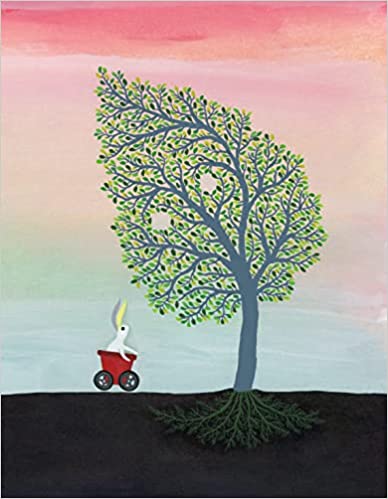 |
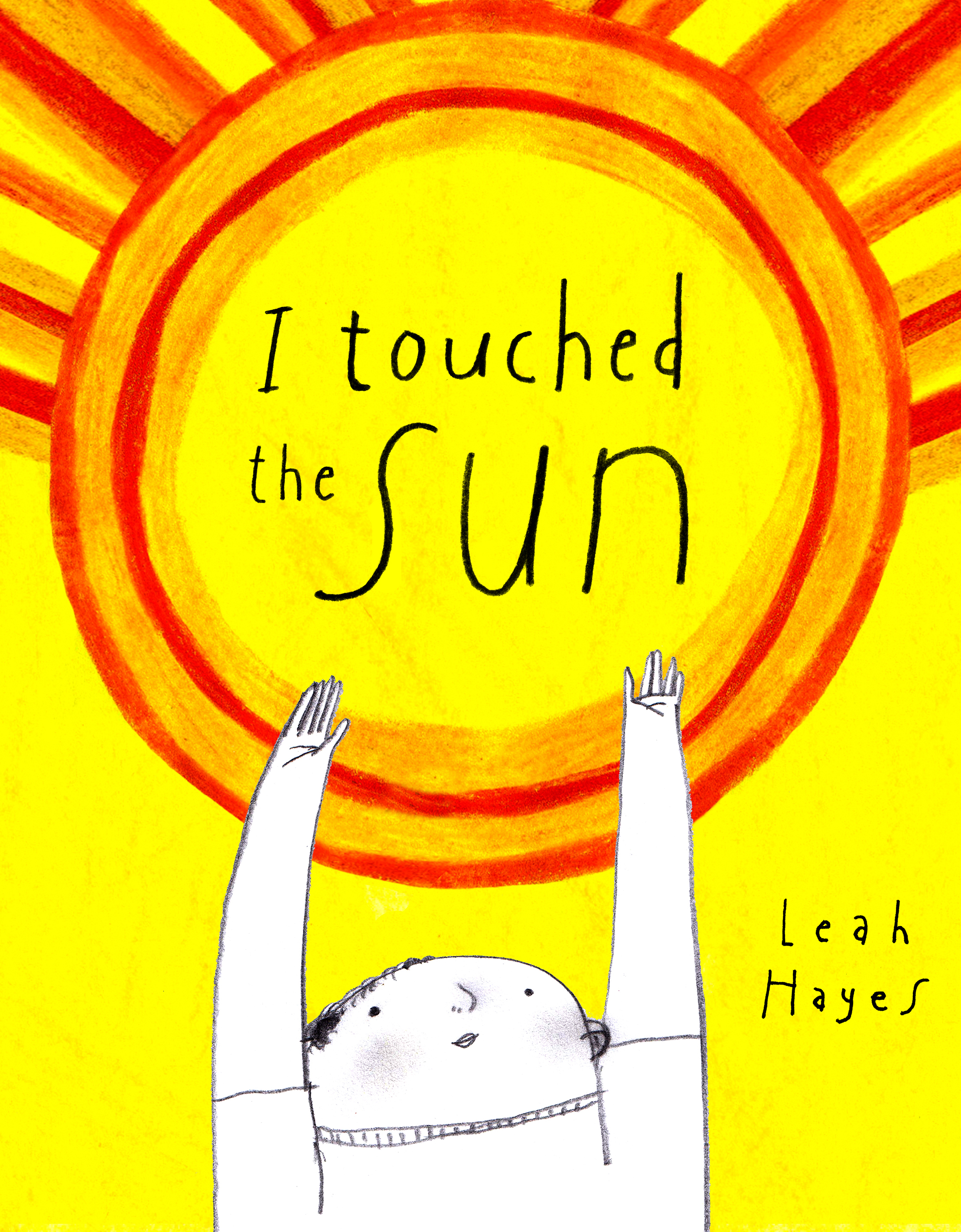 |
Leah Hayes is an illustrator and graphic novelist (Not Funny Ha-Ha). Her editorial illustrations appear in the New Yorker, New York Times, and other publications. I Touched the Sun (Enchanted Lion Books) is her first picture book. She lives in Massachusetts with her family.
Balint Zsako was born in Budapest, Hungary, to a textile artist mother and a sculptor father. His family immigrated to Canada when he was 10 years old. For the last 20 years, he has been exhibiting painting and collage, and his illustrations have appeared in the New Yorker, Harper's, and the New York Times Magazine. Bunny & Tree (Enchanted Lion Books) is Balint's literary debut. He lives in Los Angeles with his family.
Here, Hayes and Zsako discuss the differences between creating art, graphic novels, and books for children, and how great art can be created by accident and enhanced by imperfections.
Hayes: What were your artistic beginnings?
Zsako: Both of my parents are artists, and we left Eastern Europe before the Berlin Wall came down. I had a pleasant suburban childhood in Canada. I was a good student, so my parents, knowing how difficult a life in art can be, hoped I would do something else.
I went to school for photography but was also drawing the whole time. Straight out of college, I was selling my work through galleries. I also did a bit of editorial illustration and enjoyed it because it's a different way of thinking: here's a communications challenge, can you solve it for us? Whereas with fine art, it's more important to set up a good problem: I don't have to tell you what the answer is, you bring your own experience to the work.
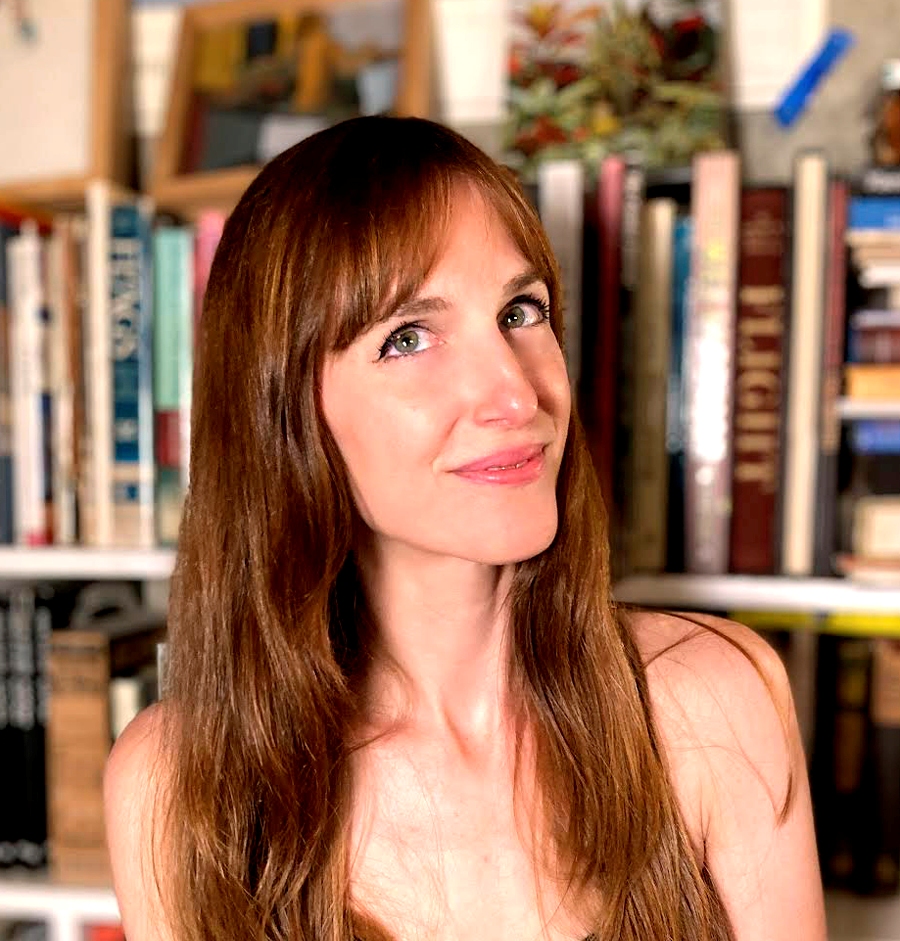 |
|
| Leah Hayes | |
Hayes: My parents were both artists as well, and I went to Parsons for illustration. I loved what you were describing: the problem-solving aspect of illustration.
I started getting work while I was still in college. I wanted to start working so badly that I was going to the New York Times offices and knocking on their door with my portfolio. I was always into graphic novels--I wrote my first one and sent it to Fantagraphics. They published it right as I was leaving school.
Later, I started teaching at Parsons, even though I didn't graduate!
 |
|
| Balint Zsako (photo: Natalie Matutschovsky) |
|
Zsako: Can you share a bit about your book?
Hayes: I Touched the Sun is about a boy who finds his light. When he wants to fly up to the sun, everyone around him says he can't. But he closes his eyes and flies up anyway, eventually touching the sun, who shows him how to find his own inner warmth and bring it back home.
And how would you describe Bunny & Tree?
Zsako: Briefly, it's a wordless, 184-page picture book about a bunny and a shape-shifting tree going on an adventure and discovering friendship, transformation, and love.
Hayes: How did the idea for the book initially come about?
Zsako: I was reading stories to my three-year-old son, and three questions popped up. Can you tell a sophisticated story without written words? Can you convey emotions using only body language and color palette in place of facial expressions? And what would it look like to make an epic for young readers?
How about you?
Hayes: The idea for this book is inseparable from becoming a parent--it is for my son, about my son. He says, when he's reading it, "Oh, that's me!" without me even telling him.
The message was really that I want him to believe in himself, and in a world of "no's," to believe in his "yes." And if people tell him not to do something, to try it anyway.
Zsako: How did you arrive at the visual style of your book?
Hayes: It ultimately came about by accident. I work in black and white with pencil, but I love color. I also have different styles: a kind of cartoony style that I've done my whole life, and the ability to draw realistically, too. I always used to separate those: I'd draw realistically for certain jobs and do graphic novels in a cartoony way. But in I Touched the Sun, the boy in the book is simply drawn, whereas the other figures are more rendered.
Zsako: That's such a sweet mirroring of how life goes.
Hayes: I was always influenced by Charlie Brown, where the adults aren't drawn, they're just sounds. I thought that if there were adults in this book, they should look less relatable to the child.
I never thought I would be creating children's books, although I've been obsessed with children's books my whole life. And I don't know about you, but making this book was more challenging than anything I've ever done artistically. It was so intense, in terms of getting it right and caring about the message, and the artwork too.
Zsako: It's all those things, and it's also about how to be clean, clear, and economical. And it's so different from fine arts because of the collaborative revision process.
Hayes: How did your book change from start to finish?
Zsako: Before I brought the book to Enchanted Lion, it was half the length, and the ending was completely different. Many people looked at Bunny & Tree, and the general consensus was: "It looks really beautiful, but we don't know what to do with it." At the time, I thought it was done. But then of course, I worked with the team at ELB. I pushed back on a few things, but I appreciated that they identified big and small flaws. They mostly didn't tell me how to fix a narrative or stylistic problem; they just pointed it out and asked what I would do to address it.
Originally there were no double-page spreads, it was all single images on the right side. But this led to a monotonous rhythm and didn't serve the adventurous nature of the story. There were also happy discoveries in collaborative editing, like using the page turn to emphasize Tree's transformation. You stumble onto something that works, and then you go back and tease that out in other parts of the book.
Would you like to make another children's book after the experience of making this one?
Hayes: Yes! Books for children can have darkness, conflict, and sadness along with all the wonderful things you're trying to impart. All my favorite children's books are technically for kids but make adults sob when they're reading them. I always thought if I was to do a children's book, I'd like to make one that feels a bit ageless. I was 40 when I wrote this, and had a whole career of trying to be an artist in the world, so I wanted to show everything I've learned in the form of this project.
Zsako: Similarly, I was about the same age when I was making the artwork for this book, and I tried to distill everything I knew about visual storytelling into it.
But interestingly enough, I found that I was compelled to leave in the traces of corrections in the final artwork. These could have been easily removed, but I find meaning in flaws: the book is alive, it has previous incarnations, and there is a generosity in not being airtight.
Book Candy
Book Candy
Whodunit? "Over 100 people trapped for several hours in mystery writer Agatha Christie's former home," CNN reported.
---
Five rare books from the National Poetry Library's collection were showcased by Fine Books & Collections magazine.
---
J. Robert Oppenheimer "explains how, upon witnessing the first nuclear explosion, he recited a line from the Bhagavad Gita." (via Open Culture)
---
Merriam-Webster looked up "11 words for people who love sleep."
More for Comics Fans
More for Comics Fans
Graphic novels demonstrate their versatility, covering everything from biography to fantasy, in books for both adults and children. Here Shelf Awareness highlights a few comics and graphic novel favorites we reviewed earlier this year.
 Too often missing from the New York roster of notable figures is Stephanie St. Clair, a Harlem legend who ran the numbers racket in the 1930s. Aurélie Lévy and Elizabeth Colomba reclaim her history in Queenie: Godmother of Harlem (Megascope/Abrams ComicArts, $24.99), "an outstanding graphic collaboration." In 1933 when Prohibition finally ended, St. Clair emerged from prison and returned to her posh apartment and Harlem society. In addition to restoring her illegal money-making empire, she also looked out for her fellow Black citizens--making loans and ensuring justice when due. When St. Clair herself was young a quarter century earlier in Martinique, she learned far too early about vicious abuses by the wealthy. Her mother's death and her determination for a different life eventually led her to Harlem, where a trusted few people kept her safe as she expanded her influence. Colomba, who shares St. Clair's Martinique heritage, is a lauded artist known especially for her visual reclamations of Black women in historic settings. She applies that energy--and "stunning art"--to sweeping, black-and-white panels.
Too often missing from the New York roster of notable figures is Stephanie St. Clair, a Harlem legend who ran the numbers racket in the 1930s. Aurélie Lévy and Elizabeth Colomba reclaim her history in Queenie: Godmother of Harlem (Megascope/Abrams ComicArts, $24.99), "an outstanding graphic collaboration." In 1933 when Prohibition finally ended, St. Clair emerged from prison and returned to her posh apartment and Harlem society. In addition to restoring her illegal money-making empire, she also looked out for her fellow Black citizens--making loans and ensuring justice when due. When St. Clair herself was young a quarter century earlier in Martinique, she learned far too early about vicious abuses by the wealthy. Her mother's death and her determination for a different life eventually led her to Harlem, where a trusted few people kept her safe as she expanded her influence. Colomba, who shares St. Clair's Martinique heritage, is a lauded artist known especially for her visual reclamations of Black women in historic settings. She applies that energy--and "stunning art"--to sweeping, black-and-white panels.
 Cartoonist Sam Szabo opens her "sidesplitting collection of comic strips" with a disarming introduction to the Enlightened Transsexual, a cosmic entity so advanced as to have "experienced life as at least three genders... tantamount to omnipotence." She is brimming with wisdom and willing to entertain the burning questions of mere mortals: "What an opportunity this is for you." It's this mixture of earnestness and egotism that provides the backbone for what is a "truly hilarious body of work" in Enlightened Transsexual Comix (Silver Sprocket, $24.99). Vibrant and psychedelic drawings that have just the right amount of frenzied verve to "nail the irreverent, and sometimes unhinged, sense of humor behind them."
Cartoonist Sam Szabo opens her "sidesplitting collection of comic strips" with a disarming introduction to the Enlightened Transsexual, a cosmic entity so advanced as to have "experienced life as at least three genders... tantamount to omnipotence." She is brimming with wisdom and willing to entertain the burning questions of mere mortals: "What an opportunity this is for you." It's this mixture of earnestness and egotism that provides the backbone for what is a "truly hilarious body of work" in Enlightened Transsexual Comix (Silver Sprocket, $24.99). Vibrant and psychedelic drawings that have just the right amount of frenzied verve to "nail the irreverent, and sometimes unhinged, sense of humor behind them."
 We Are on Our Own (Drawn & Quarterly, $22.95 paper), the "powerful" graphic memoir by Miriam Katin, transports readers to 1944 Budapest, which is still "a city of lights, culture, and elegance." Here, Katin is young Lisa, living with her mother, Esther, in a beautiful apartment and enjoys cafés and going to see Snow White with Aunt Éva. She doesn't quite remember her father, a Hungarian soldier battling the Germans. When Jewish residents are forced out of their homes, Esther and Lisa manage to disappear, staging their deaths after buying new identity papers. Their hellish experiences are affectingly mitigated by Lisa's simplifying point of view; intertwined throughout is an interrogation of faith amid such horror. Katin renders the terrifying past in vigorous strokes of black pencil--except for the threatening reds of the Nazi and Russian flags. In sharp contrast, she adds full color to panels depicting Lisa's postwar life decades later, as if underscoring the miraculous escape from darkness.
We Are on Our Own (Drawn & Quarterly, $22.95 paper), the "powerful" graphic memoir by Miriam Katin, transports readers to 1944 Budapest, which is still "a city of lights, culture, and elegance." Here, Katin is young Lisa, living with her mother, Esther, in a beautiful apartment and enjoys cafés and going to see Snow White with Aunt Éva. She doesn't quite remember her father, a Hungarian soldier battling the Germans. When Jewish residents are forced out of their homes, Esther and Lisa manage to disappear, staging their deaths after buying new identity papers. Their hellish experiences are affectingly mitigated by Lisa's simplifying point of view; intertwined throughout is an interrogation of faith amid such horror. Katin renders the terrifying past in vigorous strokes of black pencil--except for the threatening reds of the Nazi and Russian flags. In sharp contrast, she adds full color to panels depicting Lisa's postwar life decades later, as if underscoring the miraculous escape from darkness.
 Dion MBD's perceptive illustrations beautifully enhance A's extraordinary, already popular YA story by David Levithan in Every Day: The Graphic Novel (Knopf Books for Young Readers, $17.99 paper), and provide readers additional aid in understanding them as their soul wakes up in a different body every day. No matter the body, A's strong, emotional facial expressions remain consistent; MBD uses techniques in light, color, sharpness to represent emotional states, offering readers different entrances into Levithan's weighty, esoteric concept. "[A]n innovative book full of insightful observations about humans and connection."
Dion MBD's perceptive illustrations beautifully enhance A's extraordinary, already popular YA story by David Levithan in Every Day: The Graphic Novel (Knopf Books for Young Readers, $17.99 paper), and provide readers additional aid in understanding them as their soul wakes up in a different body every day. No matter the body, A's strong, emotional facial expressions remain consistent; MBD uses techniques in light, color, sharpness to represent emotional states, offering readers different entrances into Levithan's weighty, esoteric concept. "[A]n innovative book full of insightful observations about humans and connection."
 Rey Terciero and illustrator Bre Indigo reimagine Jane Austen's Northanger Abbey in graphic novel form as Northranger (HarperAlley, $18.99 paper), portraying a closeted gay Latinx teen falling for a white boy whose secrets might explain why his lake house seems haunted. Texan Cade Muñoz, 16, is working on a ranch all summer to help his family financially. He flirts with Henry, the ranch owner's son, who shares Cade's love of horror movies. When they all go to the Northranger, a maybe-haunted lake house built in 1887, Cade learns that Henry's family hides a secret; the book demonstrates the heavy burden of isolation and fear, and how it can warp reality. "Readers be warned: only pick up this book if there is time to finish it in one sitting." --Jennifer M. Brown, senior editor, Shelf Awareness
Rey Terciero and illustrator Bre Indigo reimagine Jane Austen's Northanger Abbey in graphic novel form as Northranger (HarperAlley, $18.99 paper), portraying a closeted gay Latinx teen falling for a white boy whose secrets might explain why his lake house seems haunted. Texan Cade Muñoz, 16, is working on a ranch all summer to help his family financially. He flirts with Henry, the ranch owner's son, who shares Cade's love of horror movies. When they all go to the Northranger, a maybe-haunted lake house built in 1887, Cade learns that Henry's family hides a secret; the book demonstrates the heavy burden of isolation and fear, and how it can warp reality. "Readers be warned: only pick up this book if there is time to finish it in one sitting." --Jennifer M. Brown, senior editor, Shelf Awareness


